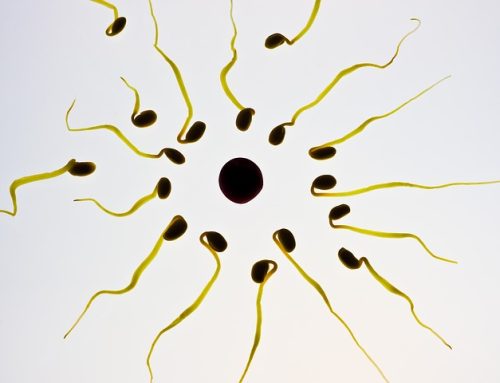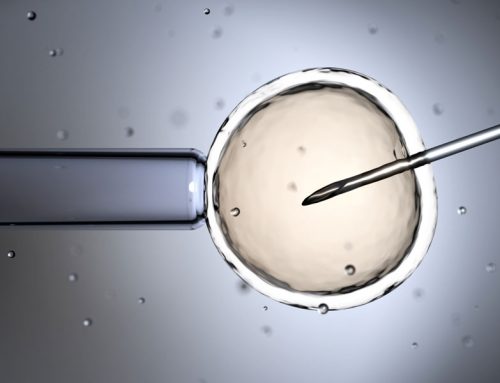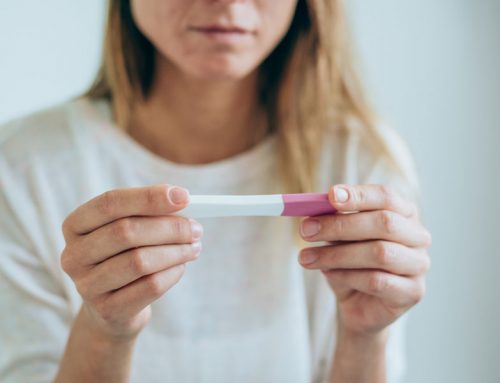Compared with placebo or no-treatment, oral supplementation with Coenzyme Q10 can increase clinical pregnancy rates in women undergoing Assisted Reproductive Technology procedures due to female infertility [Florou 2020].

A good definition of female infertility is the failure to achieve pregnancy after 12 months of regular unprotected sexual intercourse. This failure to achieve pregnancy after 12 months of trying affects one out of six couples worldwide.
Compared to control study participants, women diagnosed with poor ovarian response undergoing controlled ovarian stimulation have better clinical outcomes in terms of pregnancy achievement and in terms of a lower dosage of gonadotrophin required for ovulation induction when Coenzyme Q10 is used as an adjuvant therapy [Zhang 2020].
Coenzyme Q10 and Female Infertility
Florou et al. [2020] have summarized what we know about female infertility.
- Assisted Reproductive Technology procedures involve all in-vitro procedures handling human oocytes and sperm and/or embryos for reproduction. The procedures include ovarian stimulation, ovulation induction, in-vitro fertilization, and intra-cytoplasmic sperm injection.
- The causes of female infertility are not yet fully understood.
- Oxidative stress – defined as an imbalance between the production of harmful free radicals and the availability of protective antioxidants – is thought to be a factor in female infertility.
- Coenzyme Q10 in its reduced form ubiquinol is an important lipid soluble antioxidant, protecting against oxidative damage.
- CoQ10 supplementation in women with poor ovarian response in daily dosages of 600 mg is associated with significantly improved clinical pregnancy rates.
- Florou’s evidence comes from a systematic review and meta-analysis of five randomized-controlled trials enrolling 449 infertile women; 215 in CoQ10 treatment group and 234 in placebo/no treatment group.
Note: Oocytes are cells that can develop into mature female eggs, called ova (the plural of ovum).
Coenzyme Q10 and In-Vitro Fertilization
In a systematic review and meta-analysis of various adjuvant treatment strategies for ovarian stimulation in women who responded poorly to in-vitro fertilization, Zhang et al. [2020] found that Coenzyme Q10 was among the top three agents for improving the probability of pregnancy and for reducing the cycle cancellation rates. The other two agents that showed promise were the steroid hormone DHEA and Growth Hormone.
Xu et al [2018] showed that pre-treatment with Coenzyme Q10 improved ovarian response to stimulation and improved embryological parameters in young women with poor ovarian reserve in in-vitro fertilization cycles. The study data came from 169 study participants (76 treated with Coenzyme Q10 and 93 controls). The CoQ10 pre-treatment – 200 mg three times a day for a period of 60 days – was significantly associated with lower gonadotrophin requirements, increased numbers of retrieved oocytes, higher fertilization rates, and more high-quality embryos.
Coenzyme Q10 as an Antioxidant in the Follicular Fluid
Giannubilo et al. [2018] have shown that oral supplementation with Coenzyme Q10 may improve oxidative metabolism and oocyte quality in the follicular fluid, especially in over-35-year-old women. The researchers administered 200 mg of Coenzyme Q10 daily to 15 female partners of infertile couples, aged 31-46 years, undergoing in-vitro fertilization, and compared the outcomes to the outcomes in non-supplemented patients, also undergoing in-vitro fertilization.
They found that the CoQ10 supplementation had the following statistically significant effects:
- increased CoQ10 content in the follicular fluid
- improved oxidative status of the follicular fluid
- decreased total antioxidant capacity in the follicular fluid
Follicular fluid plays an important role for the formation of oocytes and for the development of embryos. Excessive presence of harmful free radicals in the follicular fluid can change impair fertility.
Proper Administration of Coenzyme Q10 Supplements
Because Coenzyme Q10 molecules are large, lipid-soluble molecules, they cannot be absorbed directly into the blood. They must pass from the intestinal absorption cells into the lymph and be transported in the lymph to the blood circulation.
Singh et al. [2005] have shown the following effect on absorption and oxidative stress of different oral Coenzyme Q10 dosages and intake strategies:
- Coenzyme Q10 dissolved in an oil matrix is more effectively absorbed than the same amount of crystalline Coenzyme Q10.
- 200 mg of an oil matrix soft-gel formulation of Coenzyme Q10 will yield a larger increase in CoQ10 serum levels than a 100-mg does will; however, divided dosages (2 x 100 mg) of Coenzyme Q10 will give a larger increase in serum levels of Coenzyme Q10 than a single dose of 200 mg will.
- Supplementation with properly formulated Coenzyme Q10 capsules is associated with decreased oxidative stress as measured by blood malondialdehyde levels.
The lipid-soluble CoQ10 molecules require the presence of monoglycerides for absorption into the intestinal absorption cells. Accordingly, it is best to take the CoQ10 supplement together with meals containing some fat.
Summary: Coenzyme Q10 and Female Fertility
- The evidence from randomized controlled trials indicates that there is an association between supplementation with Coenzyme Q10 in daily doses of 600 mg and increased probability of pregnancy in women with fertility issues.
- The formulation and the absorbability of commercially available CoQ10 supplements varies considerably. Spending money on an inexpensive CoQ10 supplement may well be a waste of good money.
- Absorption of CoQ10 supplements is improved if the Coenzyme Q10 is taken in divided doses with meals, e.g. in the case of women trying to get pregnant: 3 x 200 mg daily.
Sources
Florou P, Anagnostis P, Theocharis P, Chourdakis M, Goulis DG. Does coenzyme Q10 supplementation improve fertility outcomes in women undergoing assisted reproductive technology procedures? A systematic review and meta-analysis of randomized-controlled trials. J Assist Reprod Genet. 2020;10.1007/s10815-020-01906-3.
Giannubilo SR, Orlando P, Silvestri S, Cirilli I, Marcheggiani F, Ciavattini A, Tiano L. CoQ10 Supplementation in Patients Undergoing IVF-ET: The Relationship with Follicular Fluid Content and Oocyte Maturity. Antioxidants (Basel). 2018 Oct 13;7(10):141.
Singh RB, Niaz MA, Kumar A, Sindberg CD, Moesgaard S, Littarru GP. Effect on absorption and oxidative stress of different oral Coenzyme Q10 dosages and intake strategy in healthy men. Biofactors. 2005;25(1-4):219-24.
Xu Y, Nisenblat V, Lu C, Li R, Qiao J, Zhen X, Wang S. Pretreatment
with coenzyme Q10 improves ovarian response and embryo
quality in low-prognosis young women with decreased ovarian
reserve: a randomized controlled trial. Reprod Biol Endocrinol 2018;
16:29.
Zhang Y, Zhang C, Shu J, Guo J, Chang HM, Leung PCK, Sheng JZ, Huang H. Adjuvant treatment strategies in ovarian stimulation for poor responders undergoing IVF: a systematic review and network meta-analysis. Hum Reprod Update. 2020 Feb 28;26(2):247-263.
The information presented in this review article is not intended as medical advice and should not be used as such.
30 May 2021









Leave A Comment